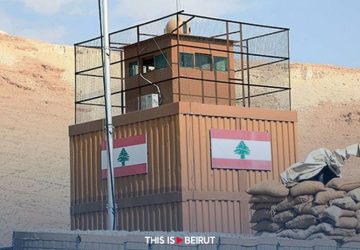Listen to the article
A new Israeli contingent is set to deploy in the upcoming weeks in the areas of Mount Hermon and Mount Dov, a mountainous border region with distinctive ground conditions. The “Heharim,” or “Mountain Brigade,” will operate under the 210th Division “Bashan,” a territorial unit of the Israeli army’s northern command in charge of the front with Syria. What strategic implications does this military deployment hold? Retired General Maroun Hitti addressed this topic with This Is Beirut.
What is the Mountain Brigade?
Israelis are preparing to deploy a specialized mountain combat brigade from the Shebaa Farms to Kfarchouba, all the way to Mount Hermon. At this point, it’s unclear whether this contingent will be newly established or if it already exists in scattered formations. In other words, it could involve battalions and regiments already trained for mountain warfare, brought together under a single command due to their capabilities and operational strength. These battalions would be able to optimize their performance in strategic terms. This internal reorganization thus aims to enhance the effectiveness of military operations in rugged terrain characterized by unique climatic conditions.
The Israelis stated that the formation of this new military unit follows “a recent assessment of the situation on the northern front, as part of an operational adjustment along the Syrian-Lebanese border.” What exactly does this imply?
The Israeli military is bracing for conflict in the area that would necessitate coordinated efforts among different units along with a mountain combat command unit, currently lacking within its structure. This initiative is a response to recent developments in the region and Hezbollah’s activities in Shebaa, Kfarchouba, Mount Hermon and Wazzani. It’s no longer a matter of conventional strategic warfare but rather mountain warfare, with troops poised to operate on both the Syrian and Lebanese fronts.
Are the Israelis preparing for an attack or a defensive action?
Currently, the situation is quite unstable, and 70% of Israelis favor a forceful response against Hezbollah. I personally believe that they are preparing for military action. I am expressing my opinion based on a fundamental war principle: the creation of a command unit signals a genuine intent for significant and effective attacks.
While the international community remains cautious about further escalation in the conflict initiated on October 7 in Gaza, the United States has asserted their inability to “prevent a war in the region,” stressing that “everything hinges on Lebanon.” On one hand, Hezbollah, and more broadly, Iran, have declared their unwillingness to go into war. On the other hand, Israel insists on the withdrawal of the pro-Iranian faction from the Lebanon-Israel border beyond the Litani River as a precondition for halting hostilities, which Hezbollah refuses to comply with. How will the negotiations evolve?
What about the French intermediary proposal sent to Beirut last month, aimed at halting military operations and resolving border disputes?



